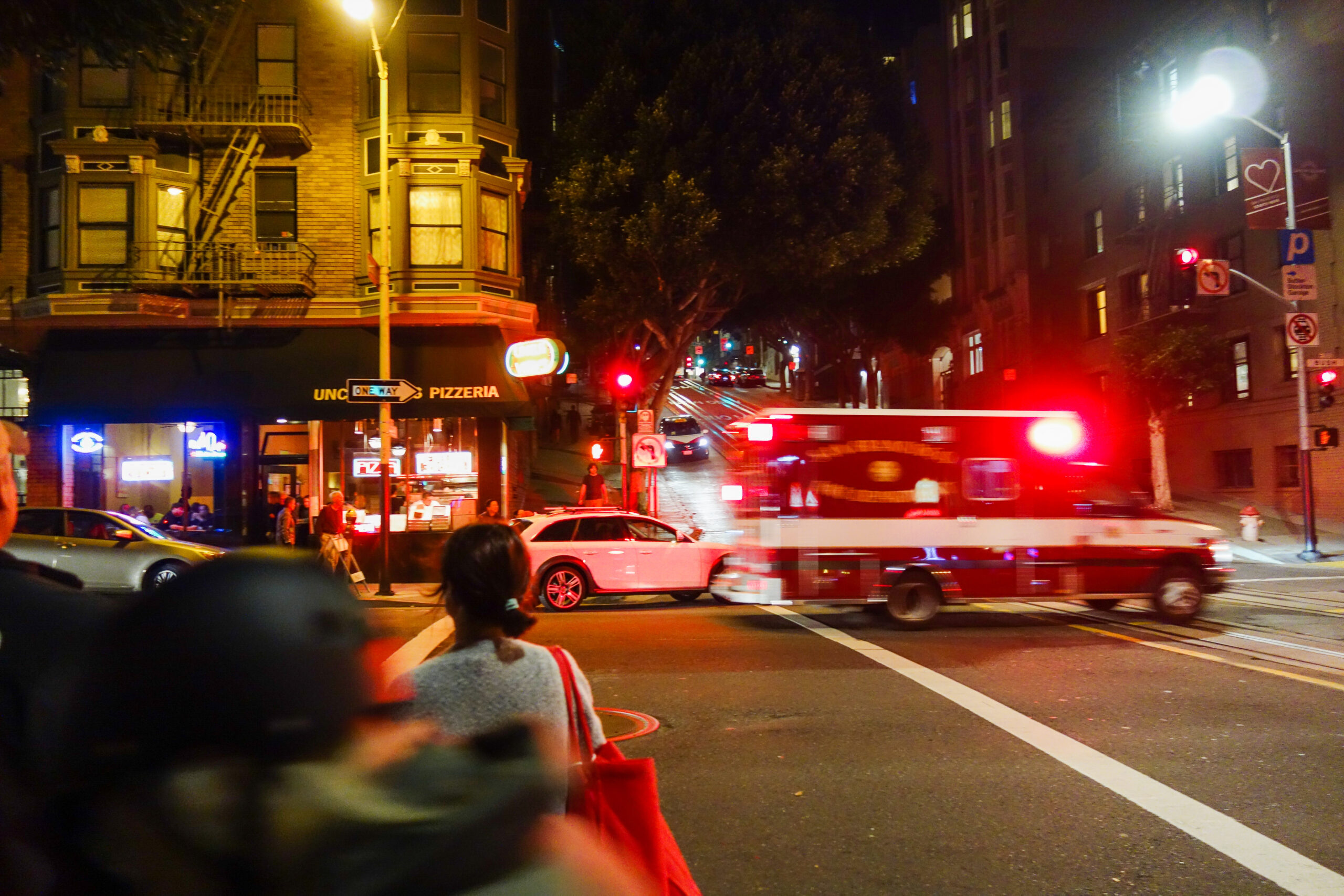Most people in San Francisco have witnessed an incident that seemed to warrant immediate emergency attention.
Whether it was a person in a mental health crisis, an apparent overdose, a homeless encampment or someone in a medical emergency, many San Franciscans face the daily torment of wanting to help but not knowing how.
Some people in the city are afraid to call 911 for fear that it will immediately involve law enforcement, according to the Department of Emergency Management’s chief of staff, Francis Zamora. Other residents have described calling the city’s emergency lines relentlessly but to no avail.
A new public information campaign, in which the city urges residents to report emergencies they witness on the streets, aims to demystify what happens when you call one of the city’s emergency lines.
When witnessing a crisis, the campaign says, you have two options:
- Call 911 for emergencies that require immediate attention, such as overdoses, fires, crimes or psychotic episodes. Such calls will trigger a response from police, firefighters or paramedics.
- Call 311 for incidents that aren’t necessarily emergencies, such as homeless encampments, debris, hazardous waste or abandoned vehicles. These calls prompt a response from one of the city’s alternative response teams that are trained to interact with unhoused people and those in crisis.
The Street Crisis Response Team, which is the predominant mental health responder for 911 calls in the city, fielded 20,648 calls from November 2020 until June 2023, taking an average of 17 minutes to respond to each call. In 54% of cases, the crisis was considered de-escalated, and the person remained in the community. In 20% of cases, clients were transported to a hospital. In 13% of cases, the person was transported to a treatment setting.
The Street Overdose Response Team, which has responded to 1,863 overdose calls since August 2021, may also respond to overdose-specific 911 calls. If someone isn’t moving and appears not to be breathing, they may be overdosing. The overdose reversal drug known as Narcan has become more available in recent years and can be administered with a simple nasal spray device. However, officials also recommend calling 911 if you suspect someone is overdosing.
Krista Gaeta, a director of strategic initiatives at the Department of Public Health, advised residents to continue notifying the city of people in crisis—even if it seems as if the calls go nowhere.
Gaeta recently helped implement a new program called the Bridge and Engagement Services Team that focuses on certain San Francisco neighborhoods and individuals in crisis. She said it often takes many visits to build trust with people who suffer from complex behavioral health conditions.
“We want to know if someone is screaming in the middle of the night,” Gaeta said. “That just builds more collateral for us as we’re working on their care plans.”
